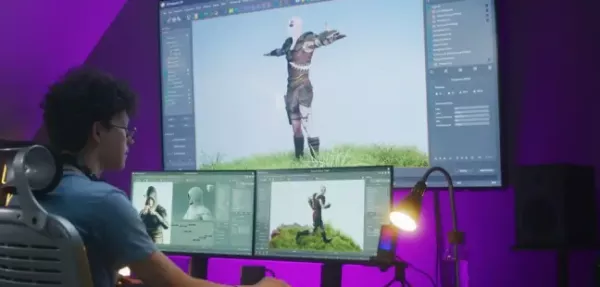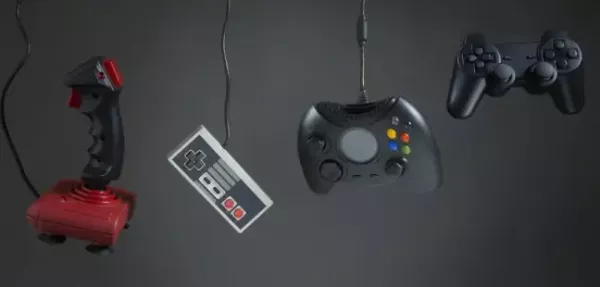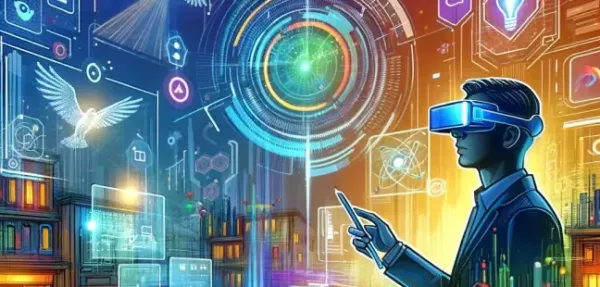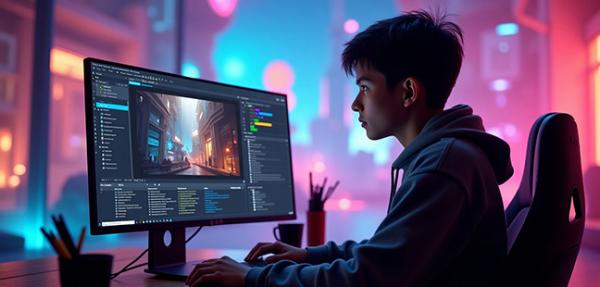How to choose the best Game Design and Development course?
- Pearl Academy Editorial Team
- Published 26-Apr-2025
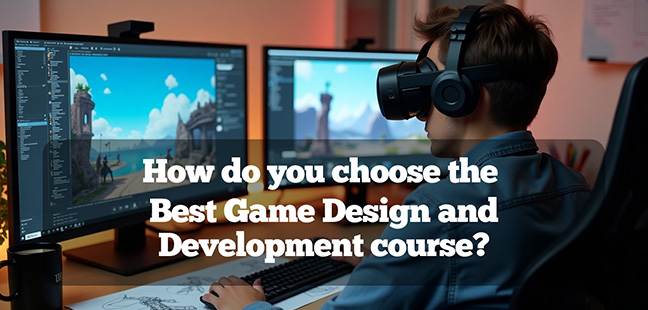
Table of Contents:
Why Pursue Game Design and Development?
Key Aspects to Consider Before Choosing a Game Development Course
Why Pearl Academy's Game Design and Virtual Production Course Stands Out
Skills You’ll Acquire
Career Scope and Industry Demand
Higher Studies and Global Prospects
Which is Better: Online or Offline?
Final Thoughts: Pick Smart, Play Hard
In a world where virtual landscapes rival reality, mastering game design and development has become more than just a hobby—it’s a high-potential career path. With the global gaming industry booming across PC, console, mobile, and emerging AR/VR platforms, the demand for skilled game developers and designers has skyrocketed.
But with hundreds of online, offline, short-term, and long-term courses available, how do you choose the best Game Design and Development course that truly aligns with your goals? Let’s break it down step by step.
Become future-ready with our Gaming Programs
Know MoreWhy Pursue Game Design and Development?
Game Design isn’t just about play—it’s about storytelling, psychology, and high-end tech. It fuses creativity with coding, world-building with logic. With the gaming industry booming across mobile, PC, console, AR/VR, and metaverse platforms, skilled professionals are in high demand globally.
From animation and virtual production to gameplay design and UI/UX, the spectrum of game development has widened dramatically. This makes choosing the right course more vital than ever.
Whether you dream of developing AAA titles, cozy indie games, or VR learning platforms, it all starts with the right education. You can also explore top game design courses in India to find your fit.
Key Aspects to Consider Before Choosing a Game Development Course
Before signing up for any course, evaluate these critical factors to ensure you’re investing in the right one:
1. Course Curriculum and Structure
Is it a balanced mix of theory and practical learning? A solid course will cover everything from narrative design to gameplay mechanics, animation, and real-time rendering.
2. Specialisation Areas
Does it offer modules in advanced fields like AR/VR, virtual production, AI in gaming, or mobile game design?
3. Tools & Software Training
Make sure the course provides hands-on training in industry-standard tools like:
- Unity
- Unreal Engine
- Blender
- Autodesk Maya
4. Faculty and Mentorship
Courses led by industry professionals or seasoned game developers offer real-world insights and better networking opportunities.
5. Portfolio Development
Will the course help you build a strong portfolio with finished projects? This is key for job placement.
6. Industry Exposure
Internships, capstone projects, or live collaborations with studios help bridge the gap between learning and working.
Keeping in the mind the factors mentioned above helps reduce chances of hurried decisions and enrolments in courses that do not help.
Why Pearl Academy's Game Design and Virtual Production Course Stands Out
If you’re looking for a course that checks all the boxes, Pearl Academy’s Game Design and Virtual Production Certificate Course is worth exploring.
What Makes It Unique?
- 11-month intensive program with real-time industry exposure
- Focus on storytelling, level design, character building, and world creation
- Hands-on experience with Unreal Engine and other cutting-edge tools
- Mentorship from top professionals in the industry
- Access to collaborative projects and internships
Whether you aim to enter the gaming, animation, AR/VR, or virtual production industries, consider this 11-month virtual production certification for real-world skills.
Skills You’ll Acquire
A top-tier course will equip you with the essential skills required for video game designers, helping you stand out in this competitive industry.
- Game engine proficiency (Unity, Unreal Engine)
- 2D/3D animation and asset creation
- Storyboarding and narrative design
- Scripting and gameplay mechanics
- Level design and player psychology
- Collaboration, project management & QA testing
These transferable skills are also applicable across AR/VR, film, animation, and simulation industries.
If you're also passionate about competitive gaming, check out our blog on how to become a professional gamer.
Career Scope and Industry Demand
The demand for game designers, animators, and technical artists is exploding across:
- Game Development Studios
- Film & Animation Studios
- AR/VR Production Houses
- EdTech & Simulation Companies
- Advertising & Media Agencies
Entry-level roles like Game Designer, Level Designer, 3D Artist, and Technical Animator can offer salaries ranging from ₹4–7 LPA, while experienced professionals and leads can earn well above ₹15 LPA depending on skillset and location.
Higher Studies and Global Prospects
After completing your foundational course, you can aim for higher education in specialised fields such as:
- Advanced Game Programming
- Virtual Reality & HCI
- Game Psychology & Narrative Design
- Animation and Visual Effects
Universities in the US, Canada, UK, and Japan offer cutting-edge master's programs, opening doors to international studios and publishing houses.
Which is Better: Online or Offline?
Online courses offer flexibility and are great for brushing up on specific tools. However, structured offline programs—like those at Pearl Academy—offer a more immersive experience, with peer learning, guided mentorship, and access to high-end labs and collaborative projects.

Student Guidance Center: Our Counselors are Just a Click Away.
Final Thoughts: Pick Smart, Play Hard
Choosing the best Game Development Courses isn’t just about picking a name—it's about picking a path. Go for a course that supports your growth from pixel to production, gives you industry exposure, and nurtures your creative vision.
So, whether you're dreaming of building the next Assassin's Creed or crafting a cozy indie game, the right course can turn your ambitions into achievements.
Pearl Academy Editorial Team
Tags
- #Gaming
Pearl Admission Enquiry
Subscribe to Pearl Blogs
By clicking the "Subscribe" button, I agree and accept the privacy policy of Pearl Academy.














